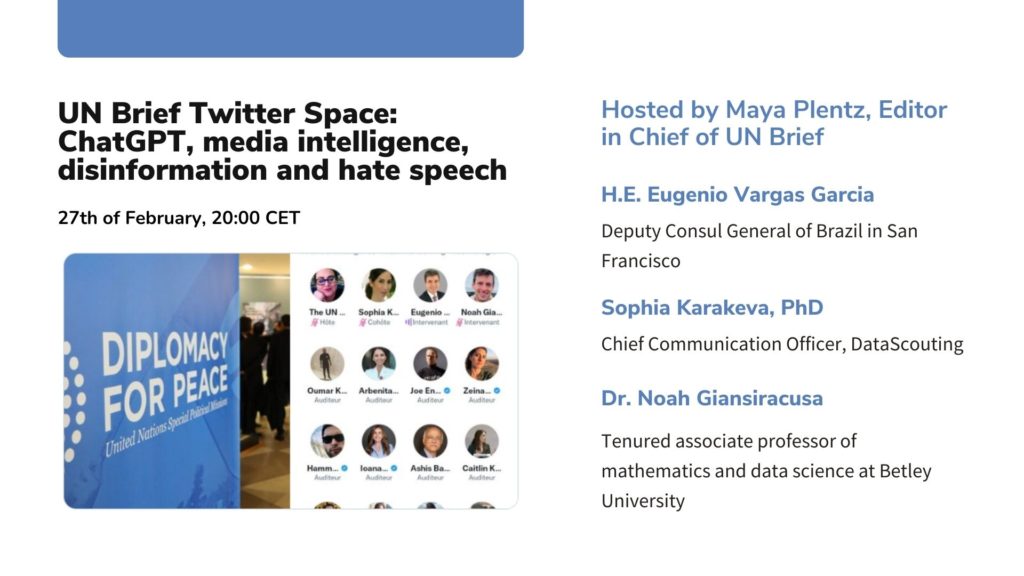On the 27th of February, UN Brief held a Twitter Space to talk about ChatGPT and diplomacy, disinformation and hate speech, how media intelligence software monitors the issue, and the question of algorithms and the spread of disinformation.
The Twitter Space was organized and moderated by Maya Plentz, Editor in Chief of UN Brief. I met Maya in Vienna at the FIBEP World Media Intelligence Congress. In my role as FIBEP Vice President I had invited Maya to be a speaker and present at the event. We had the opportunity to talk about media intelligence and exchange views.
So, when Maya invited me to be part of this Twitter Space, I was happy to accept. During my 10-mins I talked about DataScouting’s EU-funded project with the European Journalism Centre (EJC) on a data drive approach to countering hate speech against journalists on social media (DACHS). Given my 20+ years’ experience in the media intelligence industry I talked about how organizations can counter disinformation and misinformation using media intelligence services and the right media monitoring platforms. And finally, I touched upon the sensitive issue of platform manipulation and how conversations on social media are being amplified by Artificial Intelligence.
Other speakers were H.E. Eugenio Vargas Garcia, Deputy Consul General of Brazil in San Francisco and Dr. Noah Giansiracusa, tenured associate professor of mathematics and data science at Betley University. Eugenio talked about ChatGPT and its implications on diplomacy. Noah presented his research on algorithms and fake news, while also outlined the current landscape of the news media in the US.
The discussion continued around the impact of AI on the news business and how organizations can fight disinformation.
by Sophia Karakeva, Chief Communication Officer, DataScouting






